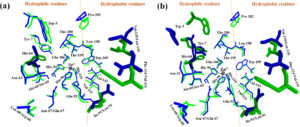INSPIRATION
Sustainability is the main focus of many emerging construction industry trends. Currently, it is time-consuming and expensive to identify sustainable materials or processes for construction projects. Green building is a popular concept that adopts environmentally-friendly measures from pre-construction planning up to project closure and decommissioning. Green buildings optimize energy and resource utilization, reduce waste during construction, and enable buildings to achieve net-zero carbon emissions. Various certifications qualify buildings as green or sustainable depending on the above-mentioned parameters. One of the popular certifications is LEED, also known as Leadership in Energy and Environmental Design, from the U.S. Green Building Council.Increasingly, advanced materials for construction purposes are also LEED-certified. Green buildings are the future of the construction industry and startups are developing solutions to support green construction.
Israeli startup Effective Building provides building products and materials databases to construction companies for implementing green building projects. The startup collects technical and functional data of the certified green products and allows users to filter for materials by technical properties. This simplifies the process of material selection for all green building projects and significantly accelerates material
sourcing for projects. The startup aims to make green building affordable and accessible for all building and construction professionals.
US-based startup Cove develops a software-as-a-service (SaaS) platform that provides data analysis for green buildings including energy, daylight, cost, carbon, and water analysis. It helps architects, engineers, contractors, and developers generate data-driven designs for their buildings. The software automates performance modeling and consequently saves time and money for construction companies. The startup delivers AI-based analysis at the pace of the project, with specific inputs to help stakeholders make informed decisions about investments, designs, and resources. Further, the platform-agnostic workflow allows different teams and processes to collaborate within a shared digital workspace.




